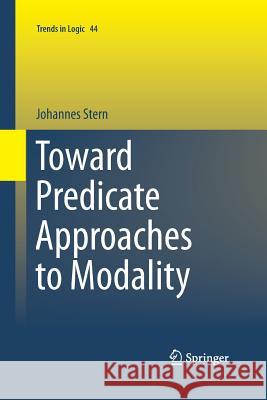Toward Predicate Approaches to Modality » książka
topmenu
Toward Predicate Approaches to Modality
ISBN-13: 9783319369525 / Angielski / Miękka / 2016 / 190 str.
Kategorie BISAC:
Wydawca:
Springer
Seria wydawnicza:
Język:
Angielski
ISBN-13:
9783319369525
Rok wydania:
2016
Wydanie:
Softcover Repri
Ilość stron:
190
Waga:
0.28 kg
Wymiary:
23.39 x 15.6 x 1.07
Oprawa:
Miękka
Wolumenów:
01
Dodatkowe informacje:
Wydanie ilustrowane











